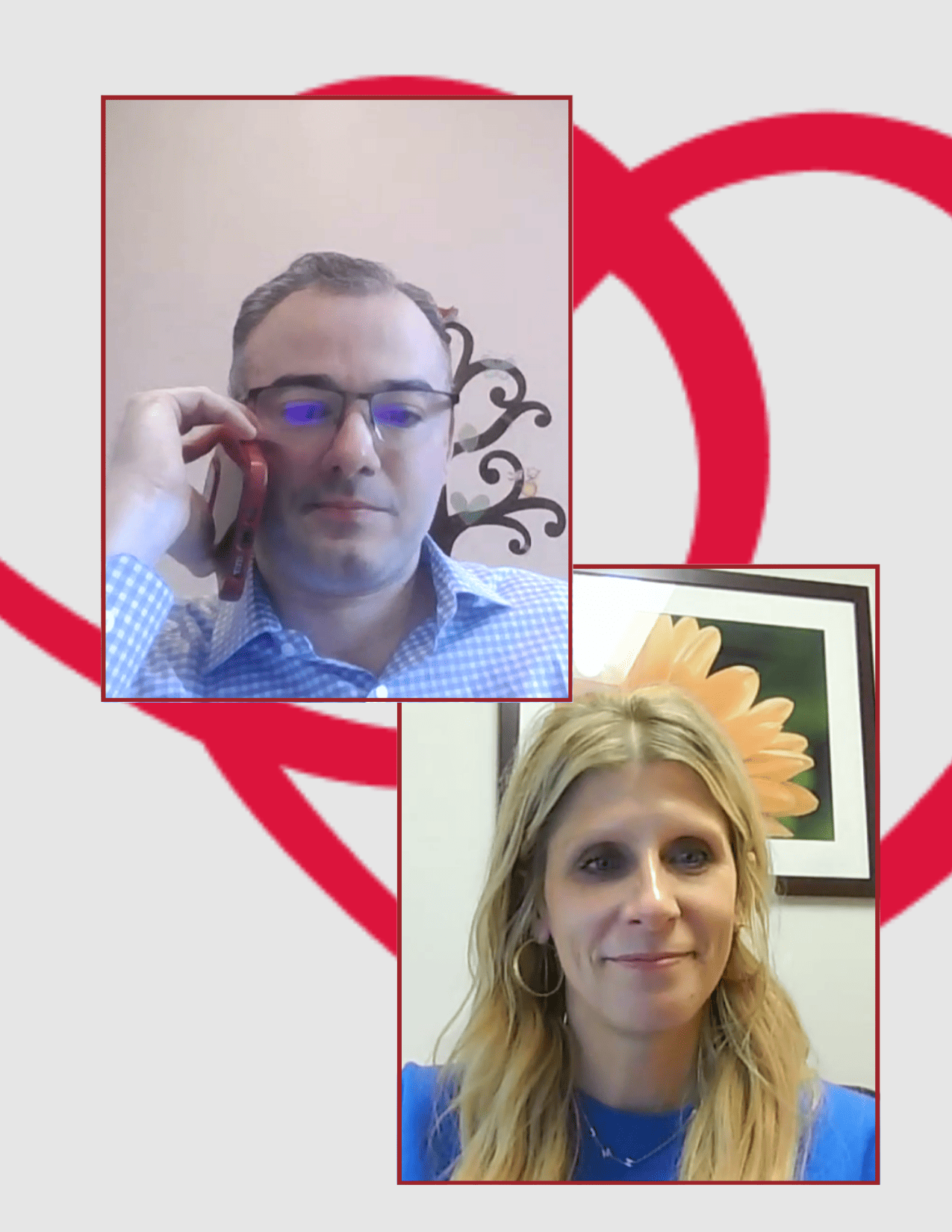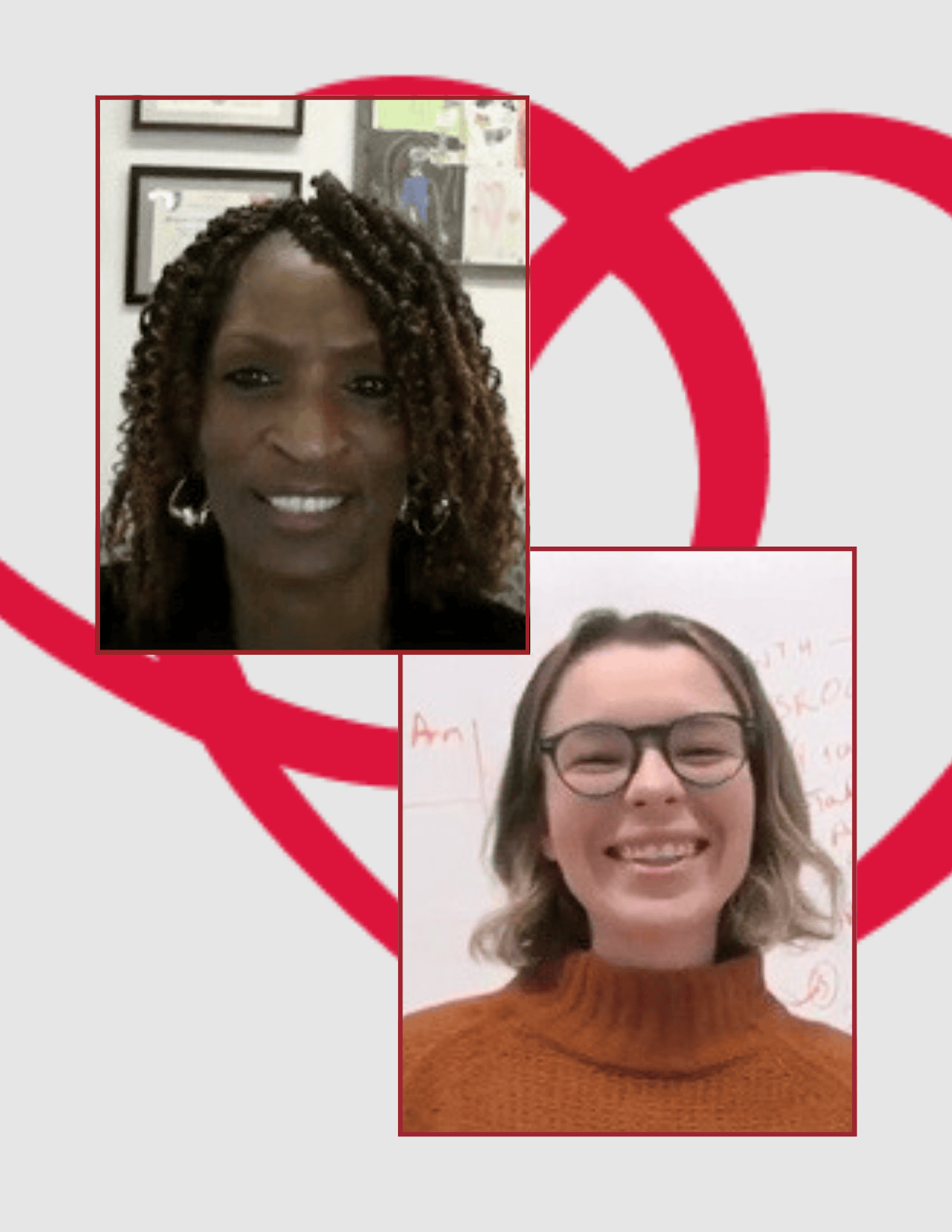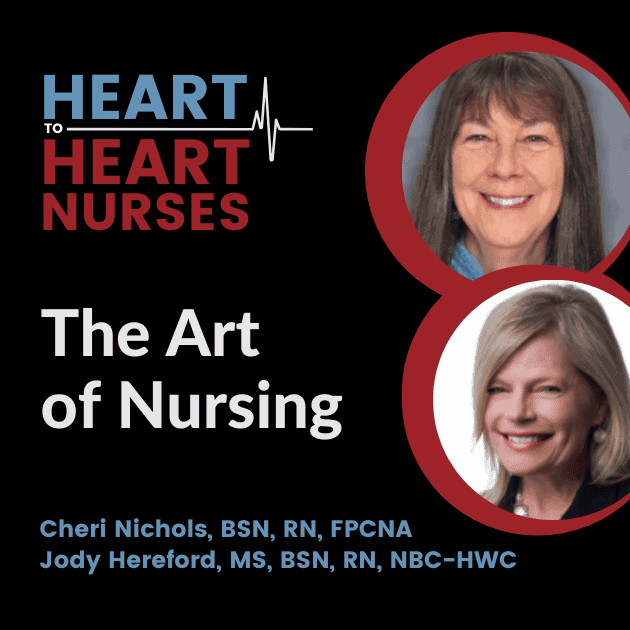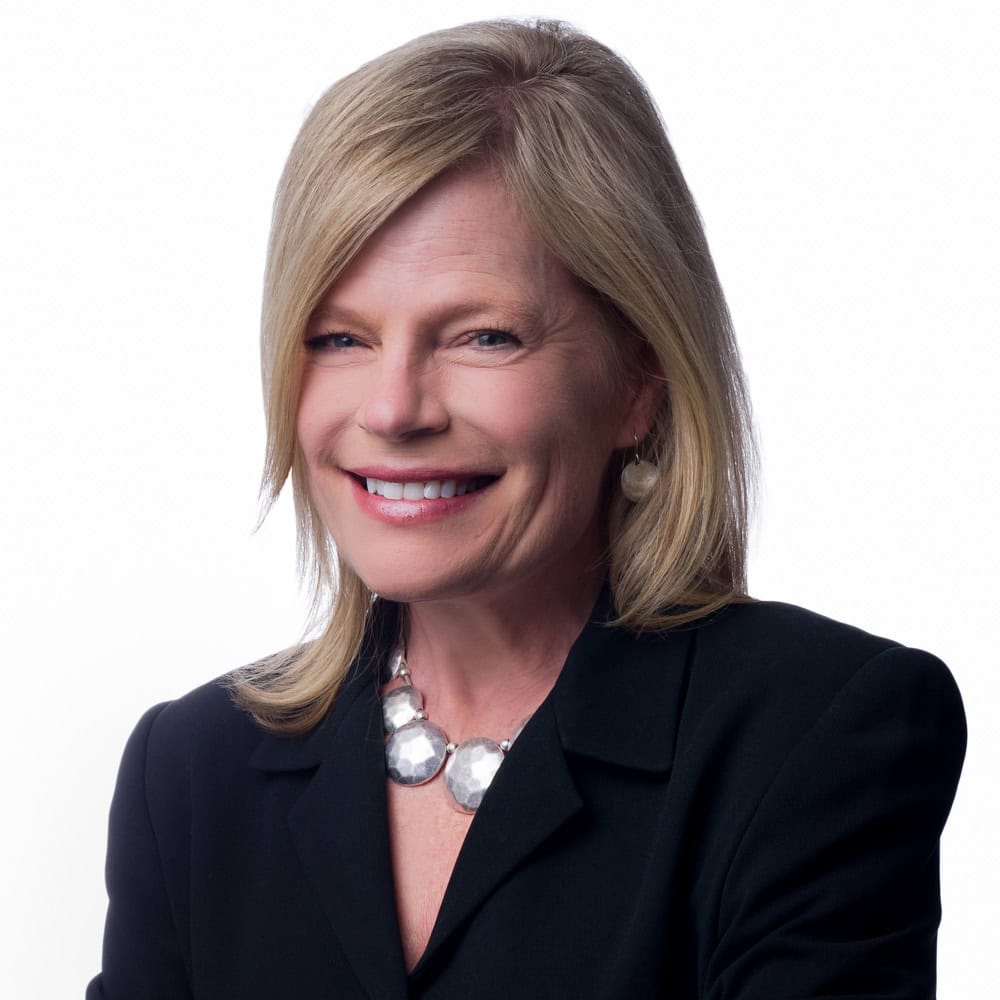Nursing is a combination of art as well of science. Guests Cheri Nichols, BSN, RN, FPCNA, and Jody Hereford, MS, BSN, RN, NBC-HWC, discuss the importance of recognizing the artfulness in what we do each day, and how it improves our outlook, our practice, and our effectiveness with patients.
Welcome to Heart to Heart Nurses, brought to you by the Preventive Cardiovascular Nurses Association. PCNA’s mission is to promote nurses as leaders in cardiovascular disease prevention and management.
Geralyn Warfield (host): I would like to welcome our audience today where we have two exceptional professionals at the table. I’m going to go ahead and let them introduce themselves to you.
Cheri Nichols (guest): Alright. So, I’m Cheri Nichols. I live in Colorado and my career was based in the community. I was a health counselor, a screener, a supervisor of other nurses, and that was an extremely rewarding career that I had for about 20 years.
And prior to that, I was on the psych unit in the hospital, taking care of adults that were in crisis. So, those are my two aspects of my background. And I’m thrilled to be here to talk about the art of nursing.
Geralyn Warfield (host): Excellent. Jody, how about you? [00:01:00]
Jody Hereford (guest): Hi, I’m Jody Hereford. And like Cheri, background in, clearly, nursing—that’s why we’re here at PCNA. And I also have my Master’s in Exercise Physiology. And I found my passion really in health coaching and motivational interviewing where we really have the opportunity to have artful conversations with our people who are looking at better health.
Geralyn Warfield (host): Excellent. Well, I’m sure our audience can tell that we’re going to be changing gears just a little bit compared to some of our previous episodes where we’ve been talking about a lot of the science behind nursing. What is the, what do the guidelines say? What’s the latest treatment option?
But it’s very important to be well-rounded. And this team at this table today is really going to focus on the art of nursing, because it is art as well as science, as we all know. [00:02:00] Sometimes it’s not quite the, you know, things that you can find specificity about when in any journal article, but it’s equally if not more important.
Jody Hereford (guest): Hmm.
Geralyn Warfield (host): So, Cheri, could you tell us just a little bit about what it means to you to have the art of nursing?
Cheri Nichols (guest): I really want the people that are listening today, and I think that anybody who’s tuning in is tuning in because they’re interested in thinking about this as an art. Thinking about nursing as an art, or maybe examining or exploring for themselves what their artistic contributions are in their work.
And I want, I’m hoping, that anybody listening is going to think about and recognize their own artistry, because it’s an ever-evolving opportunity, you might say, [00:03:00] or journey.
And so, I wanted to start with some quotes because once we decided on this topic, I did a little research and came across some quotes that I think will really evoke some of that, just introspection.
Florence Nightingale to start with. She clearly saw nursing as an art and the quote I found of hers is, “It is one of the fine arts. I had almost said the finest of fine arts.”
Yeah. My connotation of fine arts had to do with music, or literature, or visual arts and I really wanted to see what might she have meant by that.
And so, it, you know, the definition I found fits right in. It is an activity requiring great skill or accomplishment. And there are so many ways to look at that, right?
And then, another quote I came across was Rogers. “The art of [00:04:00] nursing is the intentional creative use of oneself, based on skill and expertise, to transmit emotion and meaning to others.
So, when I kind of pause at these words, I think they’re the descriptors that help us to kind of maybe start to think of ourselves in new ways. And recognize our own artfulness.
So, you know, I think that these quotes and, you know, looking at the art of nursing, I hope it’s clear that it’s not really about, you know, what you’re doing in nursing, but how you’re doing it.
So, it doesn’t really matter what setting you’re in. If you’re in the ICU and you’re talking to a family member, or you’re talking to a colleague. or a patient wherever you are, or if you’re in the ER, or if you’re in the community doing a screening. It’s a gift that you give your patients when you listen, and when you connect., [00:05:00] and you show your compassion. Because that’s the really the start of trust. And that’s when the real work can begin if a patient wants to take action toward, you know, for their health.
Jody Hereford (guest): Great point, Cheri. And I really loved the way you framed it up originally, Geralyn, of really looking at the art of nursing, both being science-based and, and the art piece.
And coming from a motivational interviewing perspective and really looking at the conversations we have with people, it matters. So, in training coaches, I really talk with them about looking at both the art and the science because there is science behind what we do and certainly some technical skills that are so important to the healing journey.
And I think often misunderstood and overlooked are really those relational skills. So, when I talk with my students, I really talk a lot about transactional versus [00:06:00] relational. And we’ve gotten really good in healthcare, really good technology, really good transactional pieces. And what we know is that that relational piece is a huge part of the healing journey.
And one of the things that we say in motivational interviewing is really the fact that the way we are, and the way we talk with people about their health, substantially impacts their own motivation for change and taking an active role in their health and care. So, I see that communication piece as just such an enormous part of our art and what we bring to the art of nursing.
Geralyn Warfield (host): I think what you both have described is more, it’s even more than that. It’s like the soul of nursing. That what sets nurses apart from most other professions is the empathy, is that relationship building, is that commitment to others as well as commitment to self, but really helping [00:07:00] lift others up—out of pain, out of poor health, out of a bad situation, be it acute care and really is about embracing the whole person and seeing them as an entire thing, as opposed to just a lab test or something that’s in the electronic medical record.
You have brought to mind an example from my own life where I was with my mother in a nursing situation. She was in the ICU, and I was so impressed by the nurse that took care of her on this particular day.
The nurse said, “We’re going to take your mother from this stage to this stage in this day. And she was the one that provided me with hope. She was the one that provided me with the grace to know that it wasn’t going to be an easy transition, but it was going to happen. And she provided me with the support I needed as a family member because [00:08:00] she said, “I will be here the whole time and we will make sure that she gets from point A to point B.”
So that to me is really the art part of nursing.
Cheri Nichols (guest): Absolutely. She gave you, when you said hope and you know the words that you’re using, I really want people to be thinking about how they are already, you know, providing these things for their patients without even maybe really thinking about themselves as an artist.
But it’s there.
And when you were talking about, you know, the confidence that she gave you, knowing that she was going to be there for you all day with whatever was going on, and, yeah, that’s moving. Thanks for, for kind of gearing us up for talking more about that.
Jody Hereford (guest): Well, I think to build on what you’re saying there too, is the fact that, you know, what you’ve just described isn’t a 40-minute conversation. We have time to bring compassion and [00:09:00] empathy and partnership and communication.
And that is so instrumental in moving people through transitions, moving people through to better states of health.
And it doesn’t have to take a lot of time.
Cheri Nichols (guest): No. You know, you do it with your eyes and your smile and you’re just really tuning in and paying attention. And people know when you’re connecting with them and when that’s your, you know, your mission. And they feel it. And again, you know, going back to, they’ll remember how they felt.
Jody Hereford (guest): So, the quote that you’re referring to is from Maya Angelou, and it’s such a beautiful way of being.
And it says, “People won’t remember what you said. They won’t remember what you did. But people will always remember how you made them feel.”
Cheri Nichols (guest): Mm-Hmm. And you sure did. You sure remembered that, Geralyn.
Jody Hereford (guest): And in the circles of motivational interviewing, we kind of separate [00:10:00] that out from, again, you know, transactional relational. But it’s really separated out from the ‘doing’ skills.
People think, “Well, it’s about asking questions or affirmations.” But more important—and becoming even more important—is the spirit and what we call the ‘being’ skills. And that way of being with another that you so eloquently described earlier and you’ve described, and that trust building and trust in a healing relationship is critical.
Cheri Nichols (guest): It’s like the foundation because once you’ve, you know, established that trust, and that confidence, and that hope, then you know, if there’s work to do, if there’s change to happen or if there’s even–and the change might be just, you know, learning about and kind of committing in your mind to taking a new medication, or to agreeing to a procedure.
And as soon as we are comfortable with our provider, our nurse, who is, you know, trying to help us make that move, [00:11:00] we are more receptive, we are more relaxed, and we can make better decisions.
Geralyn Warfield (host): I was just going to say, the other part of this that I think we talk a lot about, but we just neglect to think about the underpinnings of it, is shared decision-making.
Cheri Nichols (guest): Yeah.
Geralyn Warfield (host): And if you think about all the decisions that you make every single day. The trust is a very important piece. The information is a very important piece. But knowing that you’re heard is a very important piece as well. And so, there’s all these components of shared dec, excuse me, shared decision-making that really require that art as well as the science part of being a nurse.
Cheri Nichols (guest): And putting the patient first. I mean, knowing, not putting the patient first, but making the patient the center. Let, allowing the patient, helping the patient be the center of the conversation so it is shared. You know, there’s all kinds of things going on, you know, that you’re trying to work on, but [00:12:00] the patient is the one who’s going to take the action.
And so, giving the patient that, not just permission, but that encouragement and setting the stage for that. It’s the foundation for everything that comes after that.
Jody Hereford (guest): Mm-Hmm. And there was a beautiful initiative that came out of the Institute for Healthcare Improvement a number of years ago. I believe it got started with the NHS in Great Britain.
And it was a, it was a shift in question. And really asking health professionals to be aware. And it was this shift from “What’s the matter with you?” to “What matters to you?” Because only then when we really understand where a person’s coming from and what matters to them, are they able to hear and to move forward in their health journey. So I, I just love that shift.
Cheri Nichols (guest): Yeah.
Geralyn Warfield (host): That is, that is amazing, isn’t it?
I’m going to [00:13:00] allow us to take a brief break and we will be right back.
Geralyn Warfield (host): And we’re back talking about the art of nursing with Cheri and Jody. And hopefully the audience is just as inspired as I am about this very important aspect of nursing. That there’s really not training for that there’s really not a manual for, but there are some great resources to help you improve that aspect of you, if that’s something that you’d like to do.
So, Cheri, I know that you have some resources that you wanted to share with the audience. What, what might those be?
Cheri Nichols (guest): Well, I, I don’t know if I would think of them as resources, as much as just some food for thought.
Geralyn Warfield (host): Perfect.
Cheri Nichols (guest): And there was a, I came across a newsletter from 2017, the Vermont Nurse Connection Newsletter. And Priscilla Smith Trudeau, she suggested that, you know, if somebody, if a nurse is listening and is thinking about, “Well, how do I, how do I start to maybe [00:14:00] examine my own, or explore my own potential for this artistry in my practice?”
And, you know, I had mentioned that it isn’t really about, you know, what you’re doing, but how you’re doing it. And Priscilla Smith Trudeau suggested that you seek out nurses that inspire you. So, if you’ve ever watched a nurse that that kind of inspired in your thought, you know, “How does she do that?” or “How does that, how does that happen, you know, how does that, how does she weave that into her practice?”
If you see a nurse that doing something that inspires you, study their attributes and listen to their stories. And ask yourself, you know, “Well, why am I inspired by this?” And start to think about, you know, the way you do things and, you know, the way you would like to maybe kind of evolve in this way.
It’s important to develop your own style, but that doesn’t happen overnight. It’s something that we hopefully do every day, throughout our entire, [00:15:00] you know, careers.
And she [Smith Trudeau] also suggested to seek out a mentor. And maybe that’s one of the people that you observed that inspired you. Somebody that hopefully exhibits excellent listening skills, knows how to give feedback effectively, displays empathetic and non-judgmental understanding. So that they’re a living example of these values that we’re talking about.
So, you know, obviously be willing to, and really wanting to keep evolving in the creative and reflective process because that’s how we keep our practice fresh. That’s how we keep moving in a direction where we’re improving our skills and our style. And I think that that’s a good place to start.
Jody Hereford (guest): Yeah. And I love what you’re talking about because it really gets into what we in the coaching world call strength spotting. And really looking for what someone is [00:16:00] doing well and affirming those things, whether it’s our patient, whether it’s a colleague, whether it’s a mentor.
And things that we observe so often in healthcare, we look at deficits and we become deficit detectors of what’s not working. And we all do so much better when someone catches us doing something right. and calls us on it.
Cheri Nichols (guest): Right.
Jody Hereford (guest): And so that’s what you’re really describing here, is that that strength spotting and what we in motivational interviewing call ‘affirmation’ as well. And it’s not saying, you know, more empty praiseworthy, like, “Good job.” “Nice going.”
It’s really noticing a strength of value and effort. “It’s hard for you to get here, and yet you’re here.”
“You did it.” And so, it’s just an amazing way to live. Our world is so much brighter when we start seeing the bright spots.
And it, and it [00:17:00] does, you know, provide—or not provide, but instill—that, the beginnings of that foundation of trust.
And it’s within that trusting relationship that the work can be done. More, the harder work can be done.
Geralyn Warfield (host): It makes the world a more joyous place and makes work a more joyous place as well.
Cheri Nichols (guest): Right.
Geralyn Warfield (host): I know that you had some quotes that you wanted to share with our audience before we leave. And so, I’m going to turn it back over to you.
Cheri Nichols (guest): Okay. Jody, do you have a quote?
Jody Hereford (guest): I do. I have another Florence Nightingale
Cheri Nichols (guest): Excellent.
Jody Hereford (guest): You had inspired me and it’s just a beautiful quote from Florence from 1893 that says, “Health is not only to be well, but to use well every power we’ve been given.”
Geralyn Warfield (host): Wonderful.
Cheri Nichols (guest): That’s, I just got like chills.
Okay. Orum a, a nursing theorist, speaks of the art of nursing [00:18:00] as “Being expressed by the individual nurse through her creativity and style in designing and providing nursing that is effective and satisfying.”
We so often, nurses are focused on outcomes, and we’re focused on, you know, the results. And we don’t think very often about, well, how are we getting through our day? How are we feeling? Do we still have joy in our, you know, in our work?
And I think that one of the ways that we can really do that and appreciate that, which helps us to avoid burnout, and helps us to just want to go to work, you know, want to have these conversations that can often be super tough is to acknowledge, you know, how good it feels when you’re able to help somebody, to establish trust with somebody.
Because this, you’re not just doing that for them, you’re doing that for yourself too, because that makes your work worthwhile. It makes it satisfying and enriching.
So, my final [00:19:00] quote is by Piet Mondrian, and he said, “The position of the artist is humble. He’s essentially a channel.”
Geralyn Warfield (host): Well, we hope that you can take the information that you have listened to or watched today and channel it into your own life and make today and every other day in the future that much better.
We are so grateful to our guests, Cheri and Jody, for talking about the art of nursing and the importance in everyone’s life every single day.
I’m your host, Geralyn Warfield, and we will see you next time.
Thank you for listening to Heart to Heart Nurses. We invite you to visit pcna.net for clinical resources, continuing education, and much more.
Published on
May 7, 2024
Listen on:
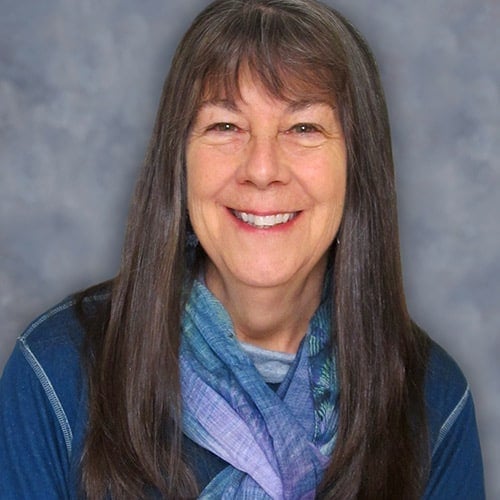
BSN, RN, FPCNA
Related Resources
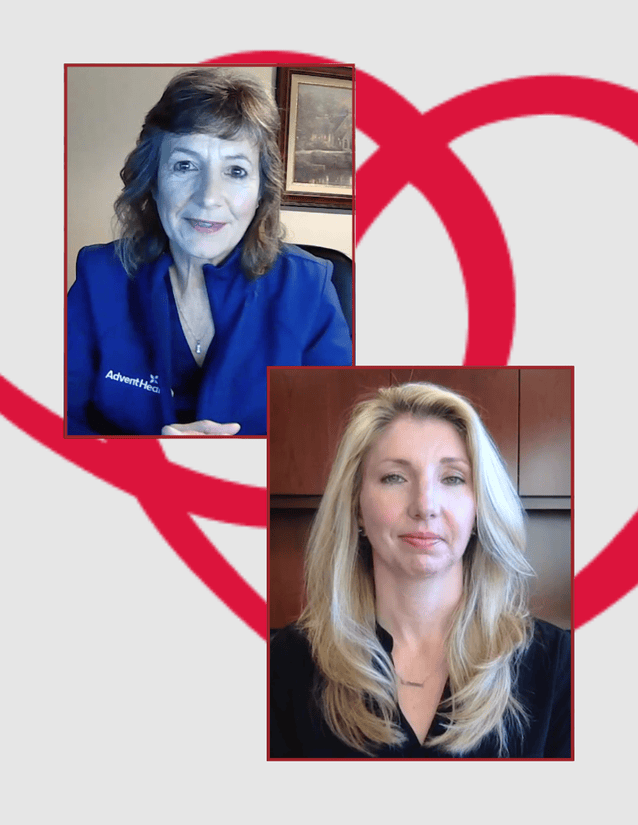
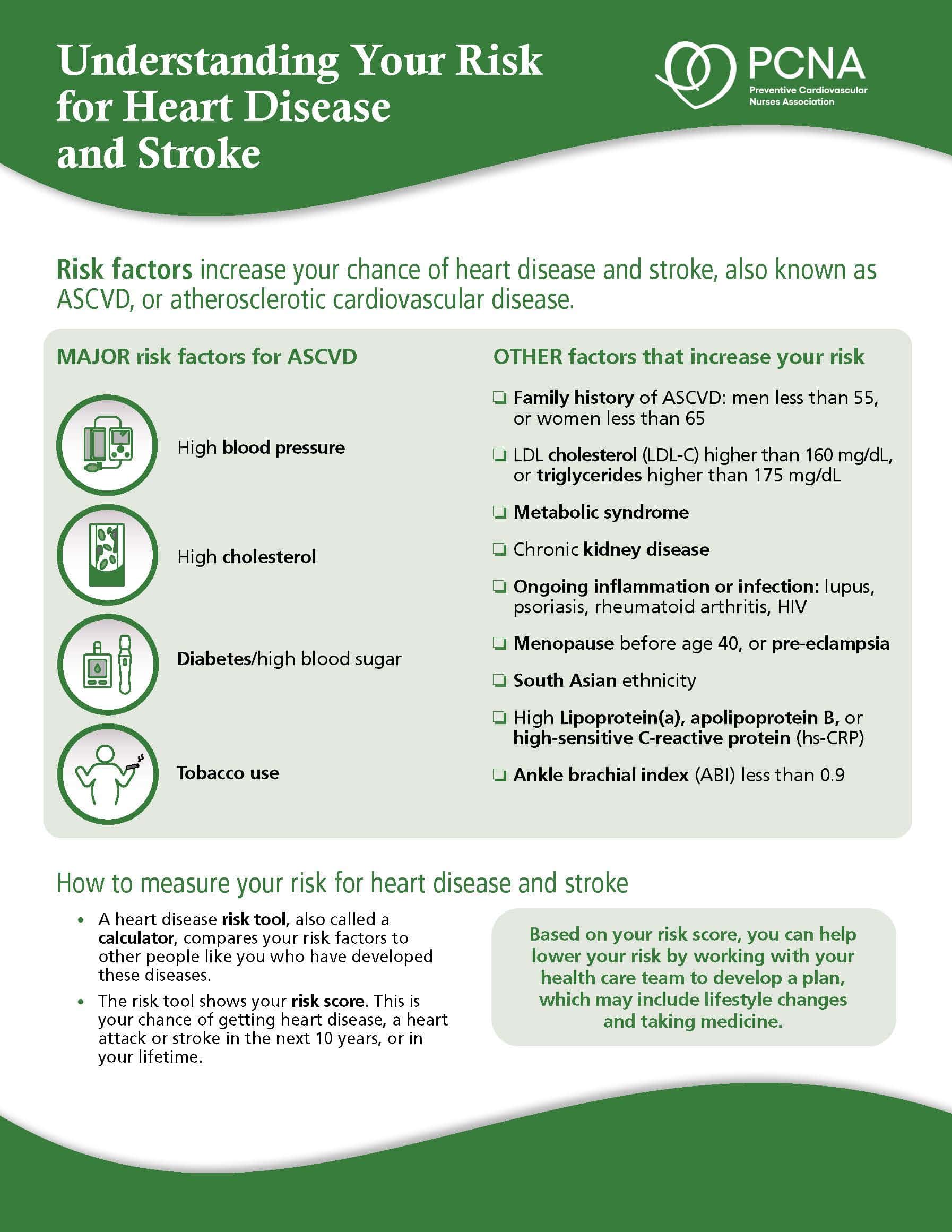
Patient Education Handouts
Understanding Your Risk for Heart Disease and Stroke Fact Sheet
February 12, 2024
